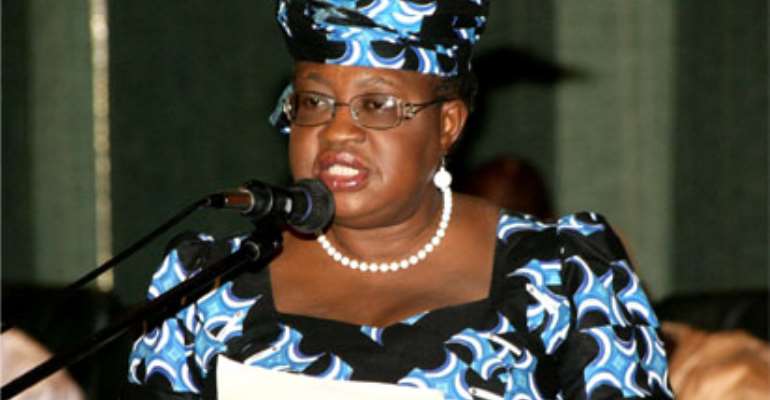Infrastructure deficit, bane of African economies – Okonjo-Iweala

The Coordinating Minister for the Economy, Dr Ngozi Okonjo-Iweala, on Monday identified infrastructure deficit as the bane of many African countries.
For her, a strategic initiative aimed at bridging the deficit was critical to enhancing the performance of the economies and competitiveness of the African countries in the rapidly changing global market.
OkonjoIweala was speaking at a high level policy Dialogue on Infrastructure and Structural Development in Nigeria, organised by the African Development Bank in Abuja.
She said that for Nigeria and other economies in the continent to muster the productive strength for competitiveness and play leading roles in the global economic order, the challenge of huge infrastructure deficit must be prioritised amongst other developmental agenda of their governments.
She explained: 'If African economies and Nigeria are to achieve the structure transformation, then infrastructure deficit must remain a priority for the next decades. We know that the productivity of our firms is reduced as much as 40 per cent and the region's growth by about two per cent each year, due to the infrastructure deficit,'' the Minister added.
Okonjo-Iweala said that a World Bank survey on corporate entities in Nigeria indicated that the most formidable challenge confronting businesses and threatening the diversification of the economy was infrastructure deficit, which stood at 53 per cent.
While noting that most developed countries had core infrastructure stock of about 70 per cent, the Minister disclosed that Nigeria’s infrastructure stock was estimated at only 35 per cent. She listed other constraints to lack of access to long term funds and corruption.
'Infrastructure comes first, access to long term finance second and corruption third. So, this shows you how they ranked the challenges we have and it makes this seminar a very important one,'' she said
Similarly, the minister also said there was the need to also tackle the issue of governance and corruption head-on along with the diversification agenda.
Commenting on Nigeria’s plans, she said government was working on a 30-year National Integrated Infrastructure Plan (NIIP) to tackle the situation, adding that government would continues to accommodate inputs or ideas from various development partners on how to tackle infrastructure deficit in the country.
The Minister clarified further: 'The deficit in the power sector remains the most stock; you just need to compare us with South Africa to see where we are. Our per capital energy consumption is a 136 KW hours per annum, which is less than three per cent of South African per capital consumption of 4,803 kilo waltz per annum.''
She said that implementation of the NIIP would positively triple the current state of the nation's infrastructure stock even as she canvassed the putting in place appropriate policies that would drive social inclusion in order to ensure that Nigeria continues in her strive to be a growing economy with Gini index growing in the right direction.
'China Gini is about 42, Nigeria 48, Brazil 55, South Africa 63 compared with Gini of 31 on the Organisation for Economic Co-operation and Development (OECD),'' she said
Gini index measures the extent to which the distribution of income or consumption expenditure among individuals or households
